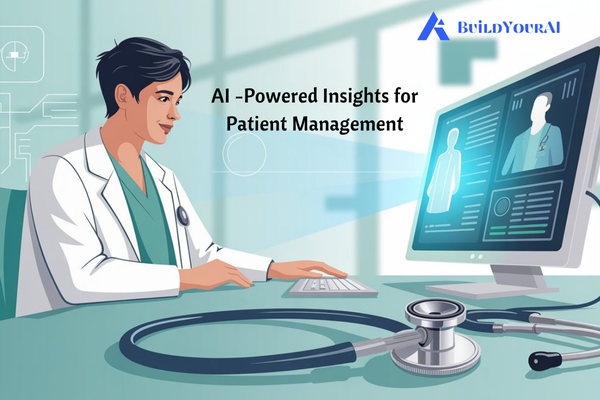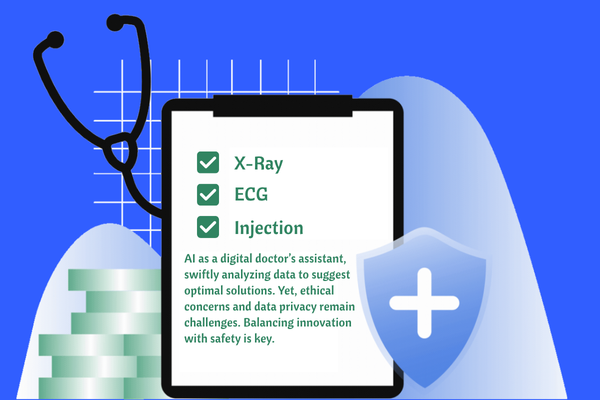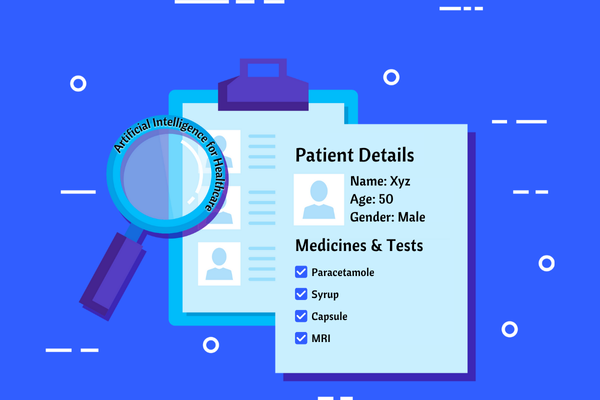How AI is Helping Smaller Healthcare Providers to Improve Patient Journeys

Blog
August 1, 2025 • 3 min read
Wondering how AI is shaking things up in healthcare these days?
What used to be exclusive for large hospital systems and research institutions is now within reach of smaller healthcare providers, allowing them to bring precision medicine and smarter operations right to their patients like never before.
Today’s tech is all about empowering smaller providers with easier and smarter diagnostics, streamlining workflows, personalized care, and improved data handling, creating a new age of affordable and high-quality healthcare.
Smart Diagnostics for Early Disease Detection

So here’s where it gets interesting! Predictive AI tools are changing the game for small- to medium-sized diagnostic centers. These clever systems can take a look at medical images, lab results, and patient histories to spot patterns that we humans might overlook.
Now, smaller healthcare practices are embracing AI-driven diagnostic tools that can do some pretty impressive things:
- Spot early signs of cancer in X-rays with over 90% accuracy.
- Pinpoint risks of heart problems by analyzing ECGs and connecting the dots with patient data.
- Anticipate potential diabetes complications just by looking at glucose levels and lifestyle choices.
- Screen for mental health issues by analyzing speech patterns and other behavioral cues.
The difference it makes is huge. Healthcare providers are seeing up to a 40% drop in misdiagnoses when they use these AI tools. And on the patient side, this means earlier treatments, which lead to better outcomes and less long-term healthcare spending.
AI-Enhanced Workflow Automation
Managing all the administrative tasks can feel like a mountain for healthcare providers, especially those smaller practices that don’t have a ton of staff. Thankfully, AI is stepping up to tackle this challenge, changing the daily grind for clinics.
Smaller healthcare providers are leveling up by using custom AI agents for healthcare that fit their exact needs. These personalized digital assistants can answer patient questions, book appointments, and more. This means staff can focus on other important stuff, which helps things run a lot smoother overall. Now we’ve got AI agents that take care of mundane tasks that once ate up precious hours:
- Intelligent scheduling tools that help book appointments by considering both availability and patient needs.
- Automated documentation that records patient visits in real time and creates detailed clinical notes without a hitch.
- Smart triage systems that prioritize patient communications based on how urgent they are.
- Billing automation that deals with insurance claims and catches coding mistakes before they go out.
And here’s the cherry on top: clinics that have jumped into these AI workflow solutions report a 30-50% drop in administrative load, letting healthcare professionals spend more time actually caring for patients while keeping everything running smoothly.
Affordable Personalized Medicine
Now, consider this: AI is making personalized medicine more accessible. Smaller healthcare organizations can now whip up treatment plans that are specifically tailored to each patient’s genetics, lifestyle, and medical history, without needing a fancy lab setup.
AI algorithms are busy sifting through patient data to suggest:
- Medication dosages that fit individual genetic makeups and how their bodies process drugs.
- Tailored treatment plans that take personal risks and preferences into account.
- Lifestyle changes that align with each patient’s health targets and social circumstances.
- Preventive care approaches that factor in family and personal medical histories.
When patients receive care that feels tailored just for them, scores for satisfaction shoot up, and it makes sticking to treatment plans way easier, leading to better health outcomes.
AI for Data Management and Compliance

Handling all that healthcare data can be tricky, especially for smaller providers who have to keep up with tough regulations without a dedicated IT team. Luckily, AI is here to ease the compliance burden while keeping data secure.
Modern AI systems come with:
- Automated HIPAA compliance checks that can spot privacy risks before they pop up.
- Smart data encryption to keep patient info safe and sound for those who should see it.
- Automatic reporting for audits that checks off all the required paperwork.
- Predictive analytics for spotting compliance issues ahead of time.
These systems can slice compliance costs by as much as 60%, all while keeping the risk of getting hit with fines way lower. For small and medium-sized healthcare providers, this isn’t just about making things run smoother; it’s like finding a golden ticket to growth in a world of ever-tightening regulations.
So, the bottom line here? AI for healthcare providers is no longer a luxury; it has become a fundamental tool for delivering high-quality care efficiently and affordably.
